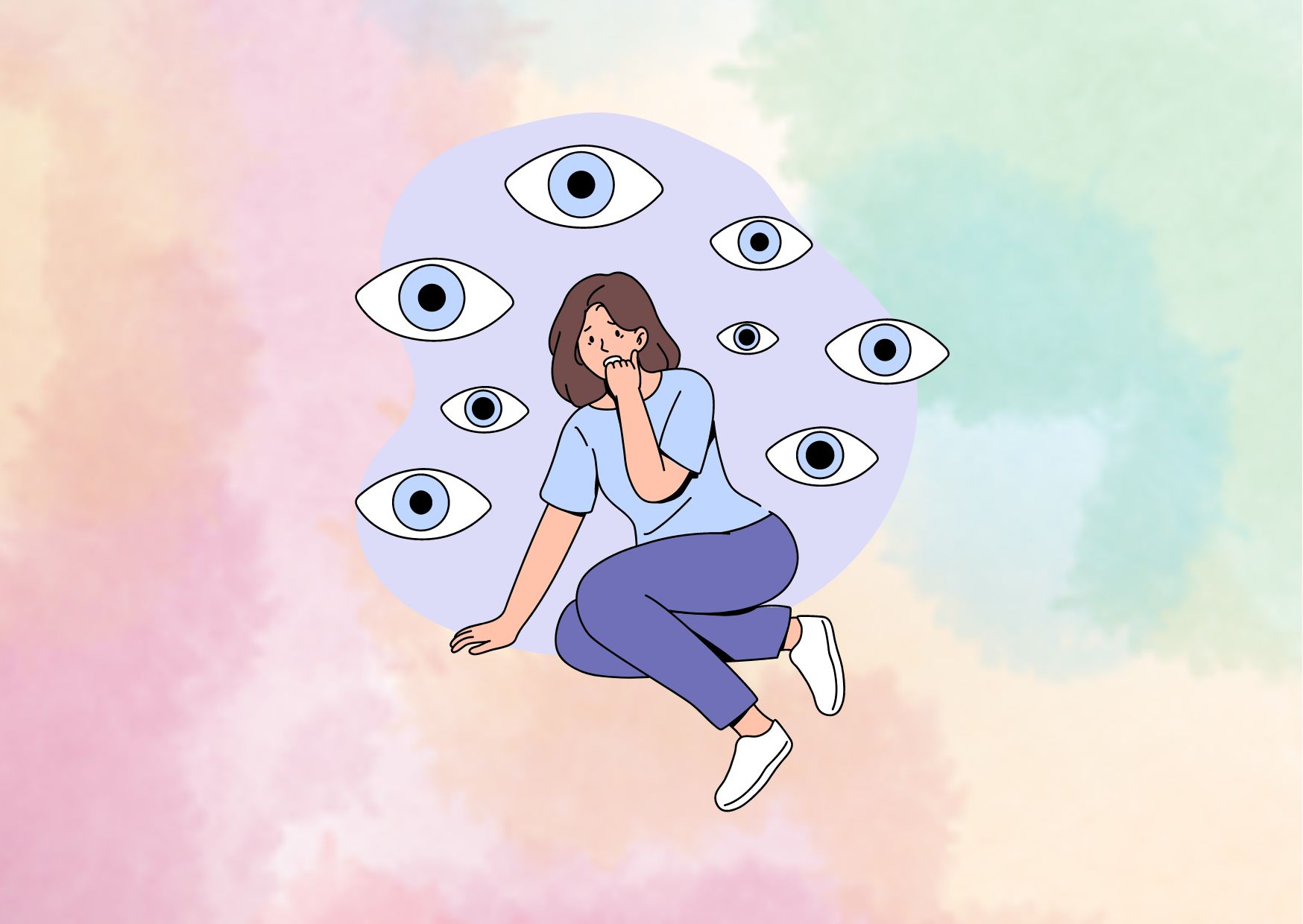10 Ways to Overcome Social Ineptitude with Ease
Social ineptitude, or struggling with social skills, can have a profound impact on one’s life. It often manifests as feeling uncomfortable, self-conscious, or anxious in social situations, leading to challenges with small talk, interpreting social cues, and maintaining connections. While some may perceive social ineptitude as simply being reserved, it can signify a deeper issue, like social anxiety or autism spectrum disorder.
This article delves into understanding the signs and challenges of social ineptitude, its impact on relationships, and practical strategies for overcoming social anxiety. We’ll explore building essential social skills, embracing imperfections, and seeking professional help when needed. The goal is to empower individuals to navigate social situations with greater ease and confidence, unlocking the doors to more fulfilling connections.
Understanding Social Ineptitude
Social ineptitude, or the inability to navigate social situations effectively, is a common experience that can stem from various factors. It manifests as difficulty in engaging in conversations, interpreting social cues, and feeling physically anxious or intensely fearful in social settings.
Potential Causes
- Lack of Social Experience: Individuals who have had limited opportunities to interact with others, especially during formative years, may struggle to develop essential social skills.
- Overthinking and Low Self-Confidence: Overthinking social interactions and harboring low self-confidence can lead to social anxiety and awkwardness.
- Negative Past Experiences: Traumatic events, such as severe bullying or rejection, can shape negative perceptions of social situations and hinder social development.
- Mental Health Issues: Conditions like anxiety disorders, depression, or developmental disorders like autism spectrum disorder can contribute to social ineptitude.
- Absence of Healthy Relationships: Lack of positive role models or supportive relationships can impede the development of effective social skills.
- Highly Intelligent or Inflexible Mindset: Individuals with exceptional intelligence or rigid thinking patterns may find it challenging to adapt to social norms and nuances.
- Sheltered Upbringing: Being sheltered or overprotected as a child can limit exposure to diverse social situations, hindering the development of social competence.
Impact on Social Interactions
Social ineptitude can manifest in various ways during social interactions, including:
| Difficulty | Description |
| Making and Retaining Relationships | Struggling to form and maintain meaningful connections with others. |
| Awkward Conversations | Engaging in conversations that are short-lived, stilted, or uncomfortable. |
| Misreading Social Cues | Failing to interpret nonverbal cues, facial expressions, and social dynamics accurately. |
| Inappropriate Behavior | Exhibiting behavior that is perceived as inappropriate or inconsiderate in a given social context. |
It’s important to note that social ineptitude exists on a spectrum, and individuals may experience varying degrees of difficulty in different social situations. Understanding the root causes and manifestations of social ineptitude is the first step towards overcoming these challenges and developing more effective social skills.
Signs of Social Ineptitude
Recognizing Social Interaction Difficulties
Social ineptitude is not simply about being introverted or preferring solitude. Many individuals may desire social connections but struggle to navigate interactions effectively. Common signs of social ineptitude include:
- Communication Challenges
- Talking excessively or dominating conversations
- Difficulty understanding sarcasm or metaphors
- Sharing personal information inappropriately
- Being a poor listener or missing the point of conversations
- Misreading Social Cues
- Struggling to interpret body language and facial expressions
- Failing to recognize when others are annoyed or disinterested
- Appearing socially awkward or disinterested in interactions
- Violation of Social Norms
- Interrupting others or not waiting for their turn to speak
- Saying inappropriate things or violating personal boundaries
- Withdrawing from conversations or avoiding social situations
- Difficulty Building Connections
- Struggling to form and maintain meaningful relationships
- Feeling like others are not interested in what you have to say
- Experiencing rejection or exclusion from social circles
- Anxiety and Overthinking
- Feeling excessively nervous or self-conscious in social interactions
- Overthinking conversations and regretting things said
- Avoiding social situations due to intense fear or anxiety
It’s important to note that social ineptitude can stem from various underlying factors, including autism spectrum disorder (ASD), attention deficit hyperactivity disorder (ADHD), learning disabilities, mental health issues like anxiety and depression, or simply a lack of social experience and exposure.
Autism Spectrum Disorder and Social Challenges
Individuals with autism spectrum disorder (ASD) often face significant challenges in social interactions. Some early signs of ASD include:
- Difficulty with eye contact
- Delayed speech or language development
- Challenges interpreting nonverbal cues
- Limited interest in peers
- Heightened stress with changes in routine
As individuals with ASD navigate social situations, they may exhibit:
- Lack of interest in playing with peers
- Difficulty making and maintaining friendships
- Communication challenges (both verbal and nonverbal)
- Lack of understanding of social cues
- Impaired empathy
- Repetitive or restricted behaviors
While social ineptitude can manifest differently for each individual, recognizing these signs is crucial for seeking appropriate support and developing effective strategies to improve social skills.
Suggestion for read: Social Cues Simplified
Challenges in Social Situations
Social ineptitude can pose significant challenges across various aspects of life, impacting an individual’s ability to navigate social situations effectively.
Difficulties in Academic and Professional Settings
- Academic Challenges: Students with social ineptitude may struggle to participate in group discussions, collaborate on projects, or build rapport with classmates and teachers. This can hinder their academic performance and overall learning experience.
- Workplace Obstacles: In professional environments, social skills are crucial for effective communication, networking, and building strong working relationships. Individuals with social ineptitude may face difficulties in team collaborations, client interactions, and career advancement opportunities.
Interpersonal Relationship Hurdles
- Forming and Maintaining Connections: Social ineptitude can make it challenging to initiate and sustain meaningful relationships, both platonic and romantic. Individuals may struggle to establish connections, leading to feelings of isolation and loneliness.
- Misunderstandings and Conflicts: Misreading social cues, violating social norms, or exhibiting inappropriate behavior can lead to misunderstandings, hurt feelings, and conflicts within personal and professional relationships.
Emotional and Mental Health Impacts
- Social Isolation and Loneliness: The inability to connect with others effectively can result in social isolation, which can contribute to feelings of loneliness, low self-esteem, and a diminished sense of belonging.
- Increased Risk of Bullying: Individuals with social ineptitude may be more vulnerable to bullying or harassment, as they may struggle to recognize and respond appropriately to such situations.
- Mental Health Concerns: Social ineptitude can exacerbate or contribute to the development of mental health issues, such as anxiety disorders, depression, and low self-confidence.
Developmental and Learning Challenges
- Communication and Connection Difficulties: For individuals with learning and attention disorders, social ineptitude can compound the challenges they face in communicating effectively and connecting with their peers.
- Delayed Social Skills Development: Lack of exposure to diverse social situations or limited opportunities for social interaction during formative years can hinder the development of essential social skills.
Overcoming the challenges posed by social ineptitude requires a multifaceted approach, including developing self-awareness, seeking professional support, and actively practicing social skills in a safe and supportive environment.
Impact on Relationships
Social ineptitude does not preclude one from forming meaningful connections and relationships. While social ineptitude can present challenges, it is possible to cultivate fulfilling relationships with mutual understanding, communication, and a focus on compatibility.
Romantic Relationships
- Acknowledging Social Challenges: The first step is recognizing and acknowledging one’s social difficulties. This self-awareness allows for open communication and sets the foundation for a supportive partnership.
- Prioritizing Emotional Intimacy: Individuals with social ineptitude can compensate for any social skill deficits by being kind, supportive, and emotionally intimate partners. A deep emotional connection can often transcend surface-level social awkwardness.
- Finding Understanding Partners: Some individuals may find social awkwardness endearing or be patient and understanding of their partner’s social challenges. Compatibility and shared values can outweigh social ineptitude.
- Effective Communication: Open and honest communication is crucial. Discussing social challenges, setting expectations, and finding ways to navigate social situations together can strengthen the relationship.
Platonic Relationships
- Finding Your Tribe: Many individuals with social ineptitude individuals find solace and acceptance within a community of like-minded individuals who embrace eccentricities and social quirks. These connections can provide a sense of belonging and understanding.
- Embracing Individuality: Within these circles, there is often less pressure to conform to societal norms, allowing individuals to be themselves without fear of judgment or shame.
- Shared Experiences: Bonding over shared experiences of feeling like “freaks, weirdos, or outcasts” can create a strong sense of camaraderie and understanding within these social circles.
Ultimately, while having social ineptitude can present challenges in relationships, it does not preclude the ability to form meaningful connections. With effort, understanding, and open communication, individuals with varying social skills can find fulfillment and acceptance in both romantic and platonic relationships.
Overcoming Social Ineptitude
Understanding Social Anxiety Disorder
Social anxiety disorder (SAD) is a persistent and intense fear of being watched, judged, or embarrassed in social situations. People with SAD often avoid social interactions, which can prevent them from building essential social skills and gaining confidence. This lack of exposure and practice can further exacerbate their anxiety, creating a vicious cycle.

